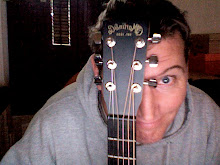My friend Marc sends a great Molly Ivins quote from the other day:
"I tune in regularly to listen to William F. Buckley, Mona Charen, George Will, Rush Limbaugh, John Sununu, John McLaughlin, Pat Buchanan, Gordon Liddy, James Kilpatrick, Robert Novak, Pat Robertson, Paul Harvey, and Phyllis Schlaffly talk about how more conservative voices are needed because of the liberal slant of the media."
In similar vein, check out this Q&A piece from MediaBistro about Eric Alterman's new book.
Also - I know it's been around for a couple of days, but it's worth browsing this piece from the Washingtonian Online about news organisations' disaster recovery plans in the event of an attack on the nation's capital.
Comment?
"I tune in regularly to listen to William F. Buckley, Mona Charen, George Will, Rush Limbaugh, John Sununu, John McLaughlin, Pat Buchanan, Gordon Liddy, James Kilpatrick, Robert Novak, Pat Robertson, Paul Harvey, and Phyllis Schlaffly talk about how more conservative voices are needed because of the liberal slant of the media."
In similar vein, check out this Q&A piece from MediaBistro about Eric Alterman's new book.
Also - I know it's been around for a couple of days, but it's worth browsing this piece from the Washingtonian Online about news organisations' disaster recovery plans in the event of an attack on the nation's capital.
Comment?

